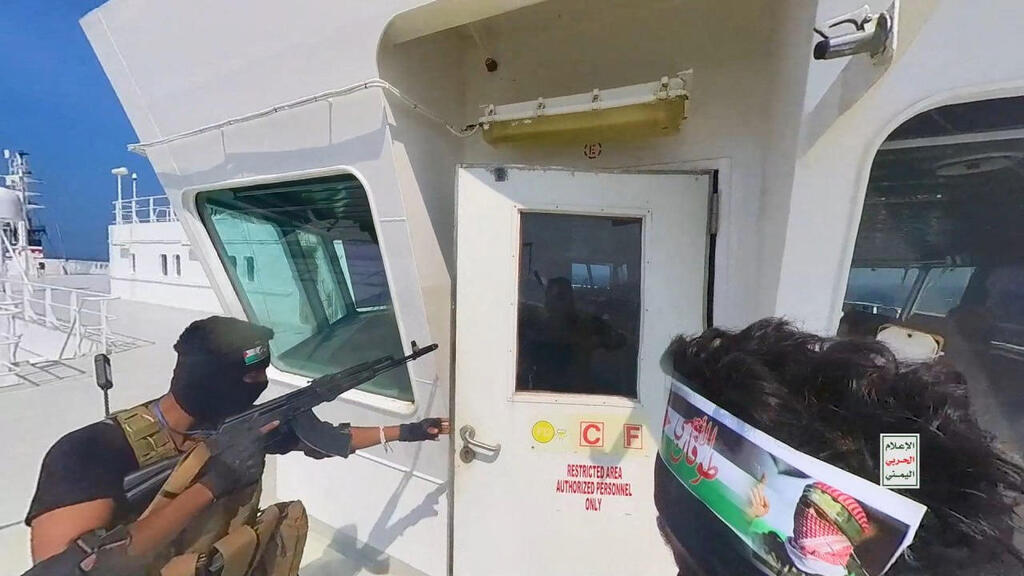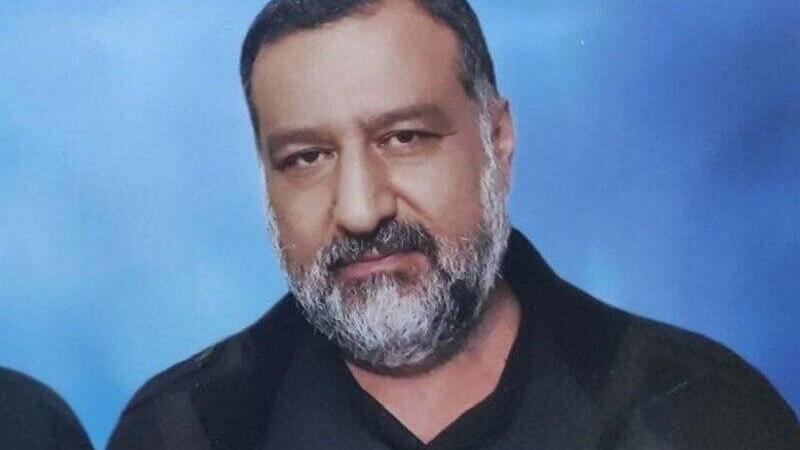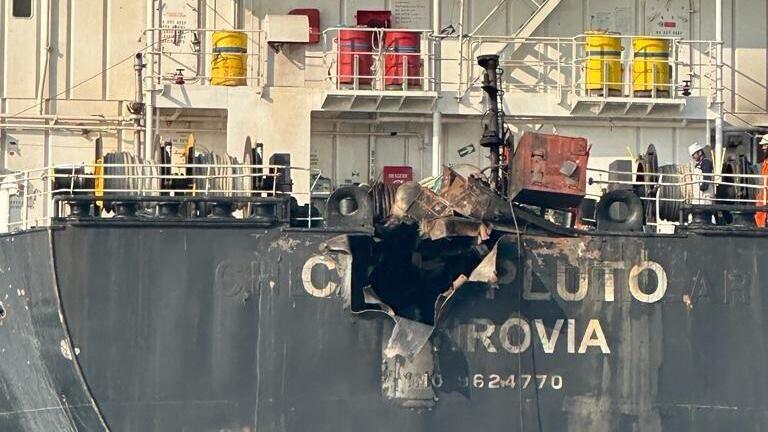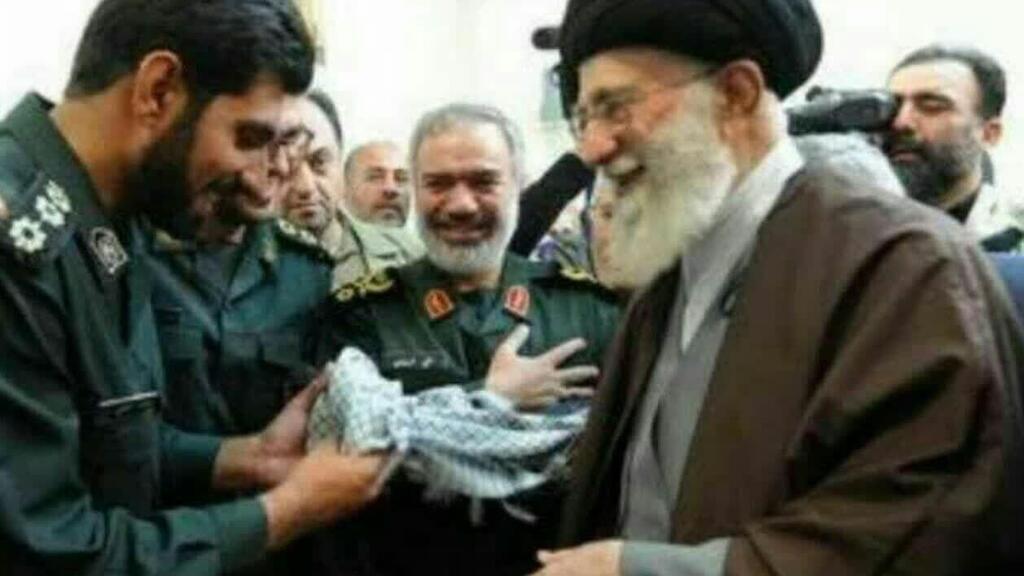Getting your Trinity Audio player ready...
Sayyed Reza Mousavi was the third brigadier general in the Iranian Revolutionary Guard Corps (IRGC) to be assassinated in Syria this month. Media outlets in Iran and the Arab world have accused Israel of his killing, as well as the previous killing of the two high ranking officers and an IRGC colonel who was killed there at the end of November. Iranian President Ebrahim Raisi threatened that Israel would "pay the price" for the latest assassination.
More stories:
According to reports out of Syria, Mousavi was killed along with some of his aides after he arrived from Iraq for a round of talks with Syrian and Lebanese officials. There is no doubt that he had considerable sway in the area and a major role in operating the Shi'ite militias working in the service of the IRCG.
Some said Israel decided to carry out the assassination after an Iranian drone attacked a ship – operated by a company owned by Israeli shipping mogul Idan Ofer – off the coast of India earlier this week.
The attack was seen in Israel as an uptick in Iran's strikes on Israeli interests, resulting in increased Israeli actions against Iranians. If those reports are accurate, it appears that the recent assassinations were part of the covert war now being waged between Israel and Iran, which is responsible for the Houthi rebel strikes against Israel in the Red Sea, as well as the attacks carried out from Syrian territory by Shiite militias.
Iran also recently supplied Hezbollah in Lebanon with advanced anti-aircraft systems to shoot down drones and attack helicopters, and those have already been put into use. These Iranian-made surface-to-air 358 missile systems attempted to shoot down Israeli drones and were even intercepted by the IDF.
Iran through the IRGC, has been more involved in aggressions in the region than has previously been known, separate from its support of Hezbollah's fight with Israel. In an effort to assist Hamas in its war in Gaza, Iraqi Shiite militias based in Syria, under instruction from Iran, launched an attack drone at the southern port city of Eilat early in November, which exploded on a local school causing damage but no injury. That attack was carried out under the supervision of Colonel Davoud Jafari of the IRGC's air force.
Jafari who appears in a photo alongside Iran's supreme leader Ali Khamenei, was killed later that month in a strike attributed to Israel. Iran claimed he had been in Syria in a military advisor's capacity. Other attacks on Israel originating from Syria, were carried out by local militias and the Hamas forces there and were not believed to have been directly initiated by Iran.
Tehran's direct involvement, however, was seen in the launch of an attack drone to the Karish natural gas rig off the Israeli coast earlier this week. An Iraqi militia claimed responsibility for the drone after it was shot down by IDF air defenses.
It is likely that the IRGC commanders who were assassinated in early December had been involved in that drone attack. They too were described as advisors stationed in Syria by the Iranian government. Another drone launched by Iraqi militias, this time via Jordan, which was also thwarted, may also have been directed by Iran.
Mousavi was responsible for coordination with the Syrian military and had been living in Damascus for the past 30 years. A close associate of slain Iranian general Qasem Soleimani, who was killed in a U.S. strike in 2020, he oversaw the transport of weapons to Hezbollah, but until Monday Israel refrained from targeting him.
If indeed Israel was behind his killing, as Arab media reports claimed, this was in response to Iran's direct involvement in aggression toward maritime trade routes, since the start of the Israeli ground offensive in Gaza.
Iran directs the actions of the Houthi rebels in Yemen. It not only provides them with weapons but also with intelligence and the information needed to identify ships connected to Israel sailing off Yemen's shores in the Red Sea. Israel has left the response to Houthi attacks to the U.S. as was agreed by Prime Minister Benjamin Netanyahu and U.S. President Joe Biden at the start of the war, but some security officials, primarily Defense Minister Yoav Gallant, likely believe Iran should be targeted directly for its action, and not only its proxies.
4 View gallery


Houthi rebels take control of theGalaxy Leader in the Red Sea last month
(Photo: Reuters)
The tit-for-tat between Israel and Iran has been going on in different arenas but are all tied to Iran's attempts to harm Israeli interests. Now Tehran's efforts are evident in the Indian Ocean and the Red Sea where it has proxies, and also in Syria where the Shiite militias operate.
If Israel is responsible for Mousavi's demise, his assassination on Syrian soil would not cause the outbreak of a regional war. Such a scenario would be more likely had the IDF openly taken action against the Houthi rebels.
Both sides appear content with a limited conflict, below the threshold of all-out war. Iran can no longer hide its direct involvement in the war against Israel, and by all indications Israel does not appear to allow Tehran's actions to go unanswered.




